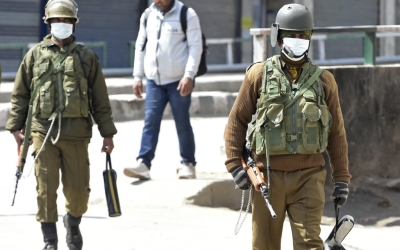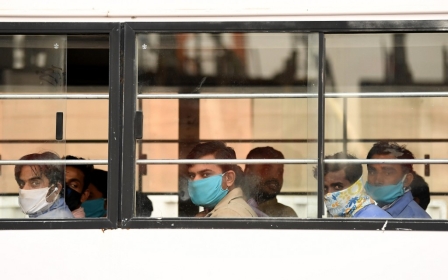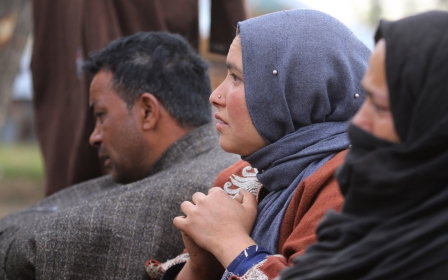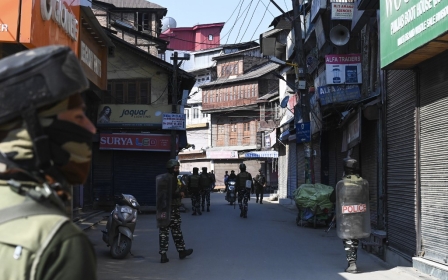Indian hospital accused of segregating Hindu and Muslim coronavirus patients
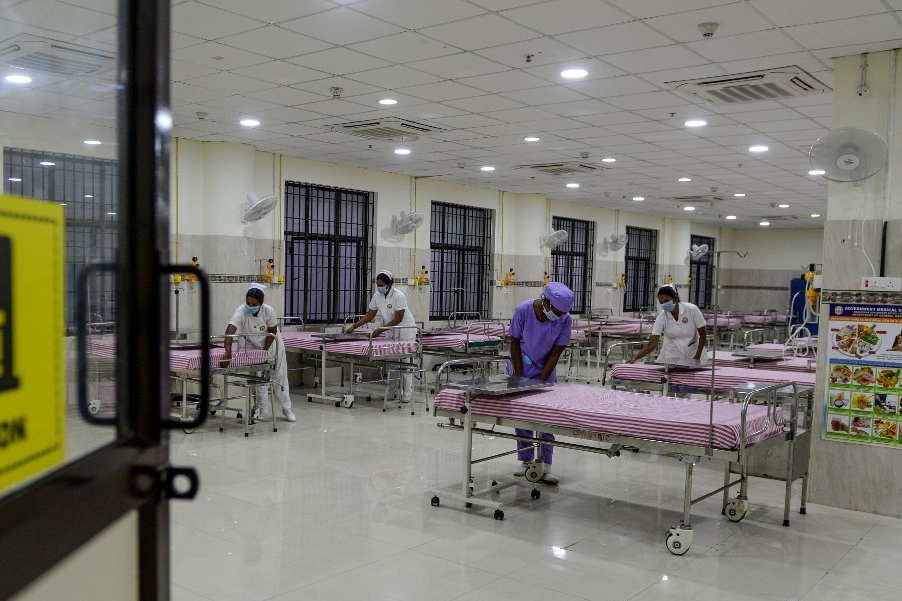
A hospital in the Indian state of Gujarat has reportedly begun segregating suspected coronavirus patients on the basis of religion, as anxieties over the disease merge with longstanding Islamophobia.
The Indian Express reported on Wednesday that the Ahmedabad Civil Hospital, which has 1,200 beds, created separate wards for Hindus and Muslims after reportedly receiving an order from the state government to enact the measure.
"Generally, there are separate wards for male and female patients. But here, we have made separate wards for Hindu and Muslim patients," Medical Superintendent Dr Gunvant Rathod said.
"It is a decision of the government and you can ask them," he added.
A patient told the paper: "On Sunday night, the names of 28 men admitted in the first ward were called out. We were then shifted to another ward.
"While we were not told why we were being shifted, all the names that were called out belonged to one community. We spoke to one staff member in our ward today and he said this had been done for 'the comfort of both communities'."
Deputy Chief Minister and Health Minister Nitin Patel said he had no knowledge of the matter.
"I am not aware of such a decision. Generally, there are separate wards for males and females. I will inquire about it."
The state of Gujarat has reported 650 confirmed Covid-19 cases and 28 deaths, as of 15 April, according to the Indian Ministry of Health.
Since the virus emerged, attacks and boycotts have spiked amid false claims that Muslims are to blame for the epidemic.
Right-wing media have accused Tablighi Jamaat, a Muslim missionary group, of conducting a malevolent campaign to spread Covid-19 to the Hindu majority.
As a result, India's minority Muslim community - which has been subject to violence by Hindu mobs and discrimination from the government - has faced heightened scrutiny.
The Jamiat Ulema-e-Hind, an organisation of Islamic scholars, filed a petition claiming that the media had purposefully linked the coronavirus to a Tablighi Jamaat meeting and that some sections of print and electronic media had "demonised the entire Muslim community".
The country's supreme court rejected the petition, saying that it could not "curb the freedom of press".
India, which has reported almost 12,000 cases and 400 deaths, issued a countrywide lockdown last month, blocking people from leaving or entering the country.
An Indian epidemiologist said last month that as much as 55 percent of the country or some 715 million people may contract the virus, while a conservative estimate suggests India may suffer about 30,000 deaths by May.
Middle East Eye propose une couverture et une analyse indépendantes et incomparables du Moyen-Orient, de l’Afrique du Nord et d’autres régions du monde. Pour en savoir plus sur la reprise de ce contenu et les frais qui s’appliquent, veuillez remplir ce formulaire [en anglais]. Pour en savoir plus sur MEE, cliquez ici [en anglais].


